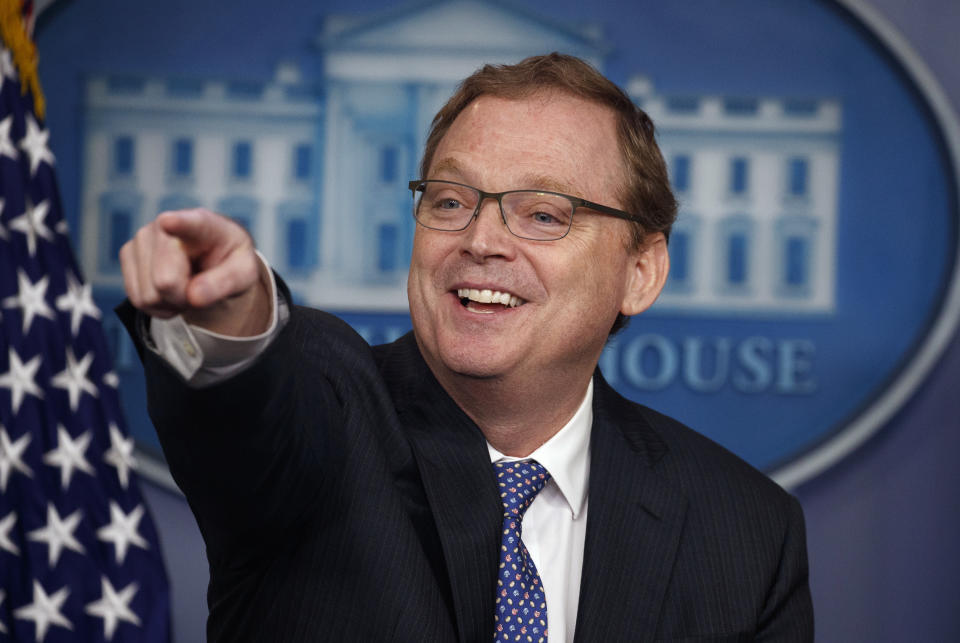White House economist: Tariffs are hurting China much more than the US
Kevin Hassett, chairman of the Council of Economic Advisers, said on Thursday that American businesses should look to alternative suppliers as U.S. tariffs on foreign goods continue to rise.
“If a tariff makes it so that you can’t buy something from China, then you can just buy it from some other country or from our own country,” Hassett said during Yahoo Finance’s All Market Summit event in New York. “There’s a lot of demand that’s sort of swinging around the world right now because of these tariffs.”
The U.S. tacked on an additional $200 billion in tariffs on Chinese imports earlier this week, catalyzing China to retaliate with announcements of intentions to impose tariffs on $60 billion of U.S. goods. The U.S. tariffs, which will take effect on Sept. 24, will begin at a rate of 10%, and could jump to 25% on Jan. 1.
Hassett added that the tit-for-tat, which has escalated since the summer, will continue to have a greater impact in China than in the U.S. Markets in the U.S. rallied Thursday as the S&P 500 and Dow both climbed to record highs despite ongoing trade tensions.
“The actions we’ve taken against China have had a big negative effect on their markets and their economy, but very little effect … here in the U.S,” Hassett said.

But business owners and economists have largely expressed concern over the tariffs and their impact on costs of imports and loss of access to overseas markets. A Yahoo Finance survey of business operators conducted Sept. 18 found that 23% of those polled felt tariffs will have an “extremely negative” effect on their businesses, with an additional 13% expecting a “somewhat negative” impact.
Hassett conceded that U.S. agricultural suppliers have been among those targeted by China’s tariff retaliations, citing soybean and almond farmers in particular. “We’re aware that those short-run disruptions are what are the costs of pursuing this long-run reform,” Hassett said. The Trump administration announced over the summer $12 billion in emergency relief for farmers hit by the ongoing trade war.
The goal is for America’s major trade partners to open their markets and provide access “that’s just like the access we give them to ours,” Hassett said. “The basic principle that the president’s talked about all the way back to the campaign is that we need fair and reciprocal trade.”
But the administration is willing to crack down if compromises can’t be made, he added. Hassett called Sept. 30 a “hard deadline” for reaching an agreement with Canada over the North American Free Trade Agreement, echoing sentiments that House Majority Whip Steve Scalise made earlier in the week.
“We’re prepared to move ahead with Mexico by itself,” Hassett. “We have a great deal with Mexico – we love it, Mexico loves it.”
Emily McCormick is a reporter for Yahoo Finance.
More from the Yahoo Finance All Markets Summit:
Larry Fink: The market will be higher in 10 years
Larry Fink: The new trade deals will be good, but will potentially come at a great cost